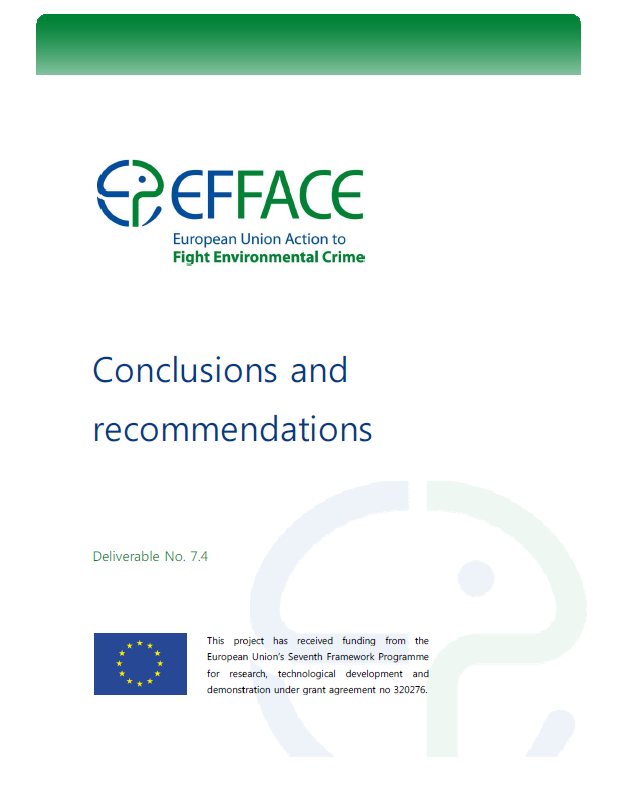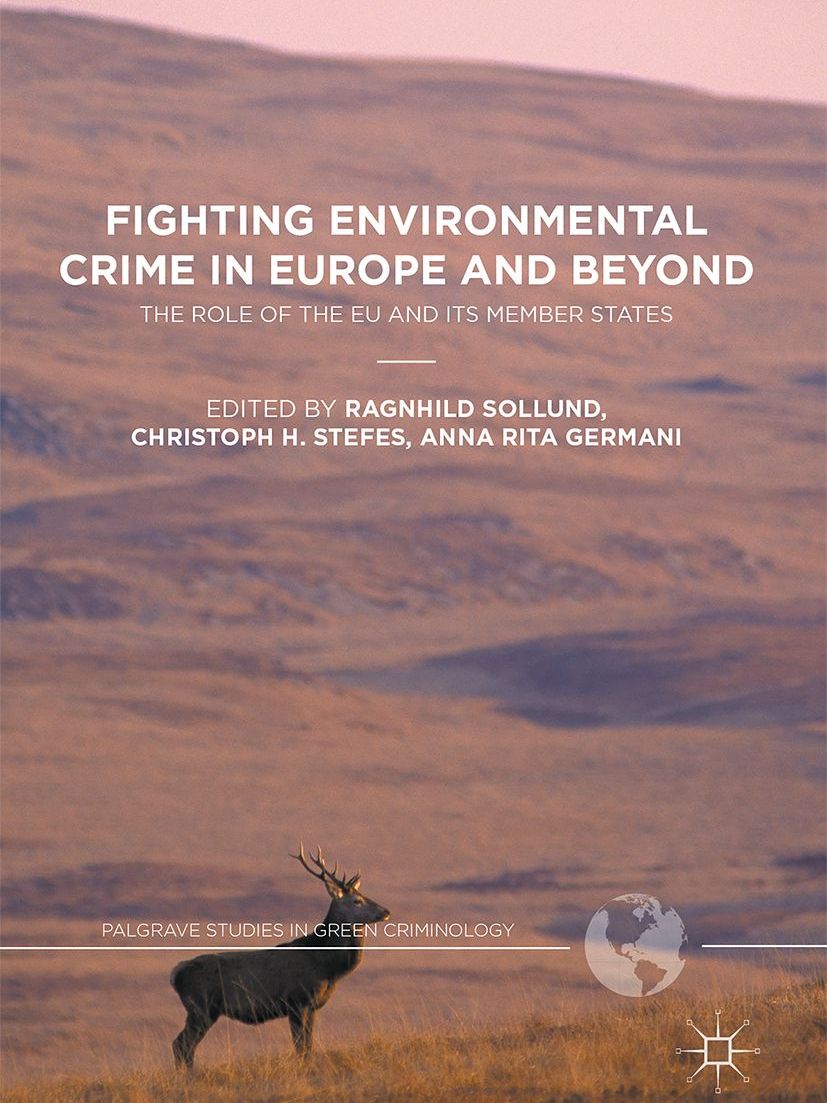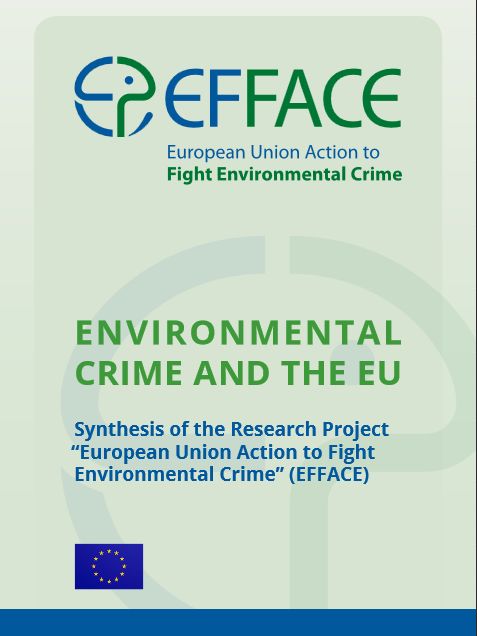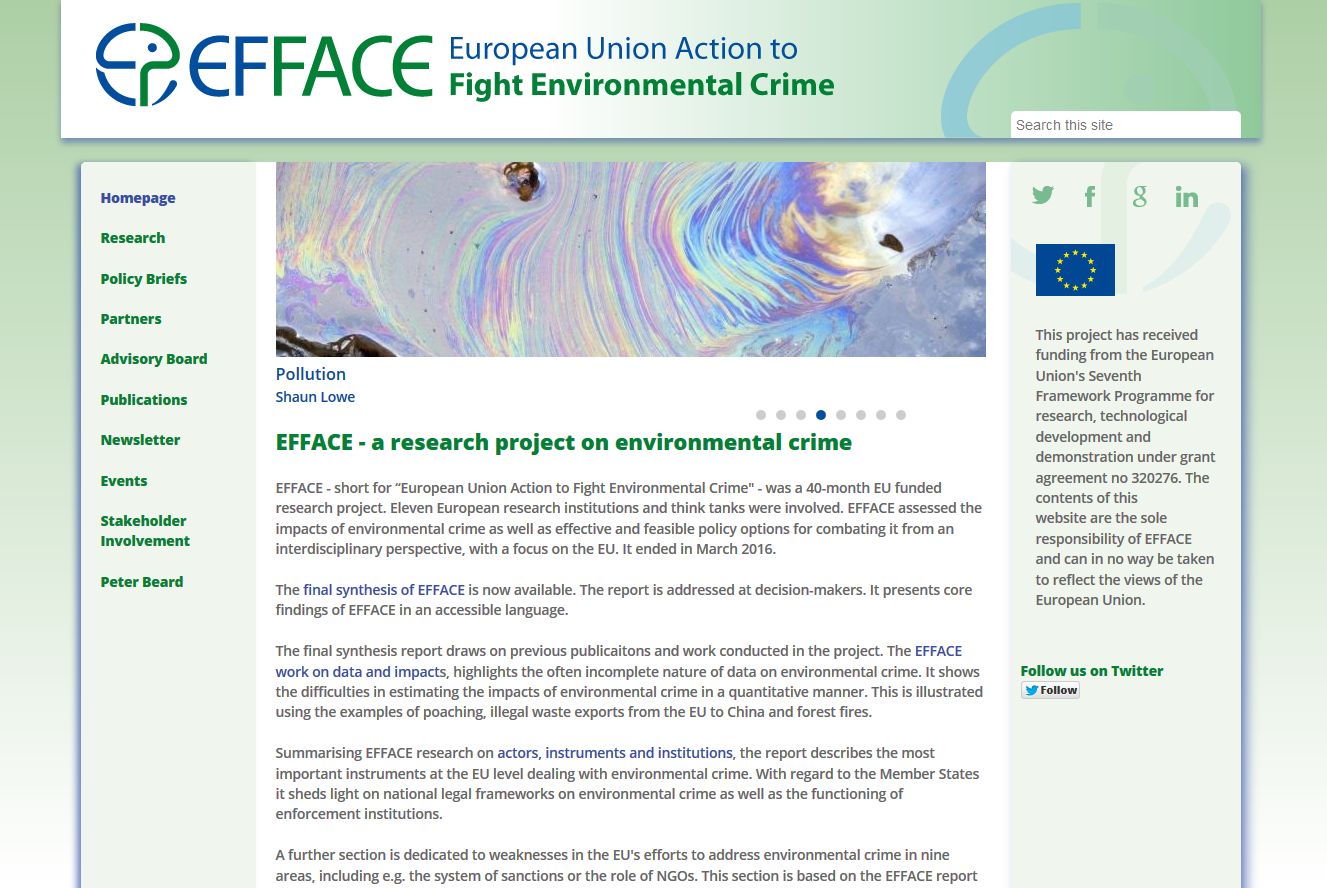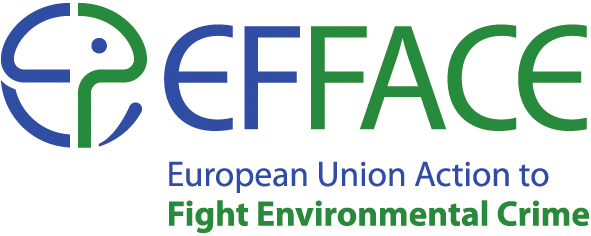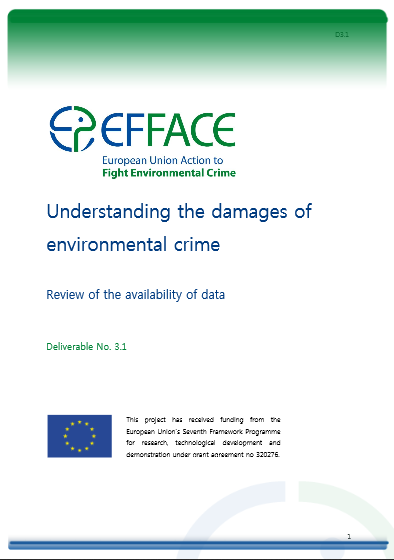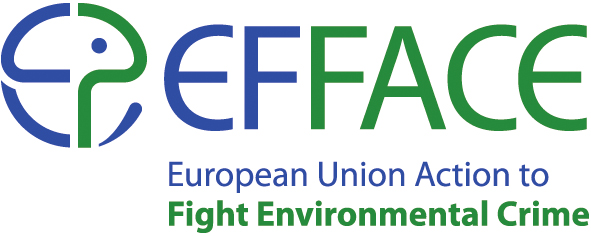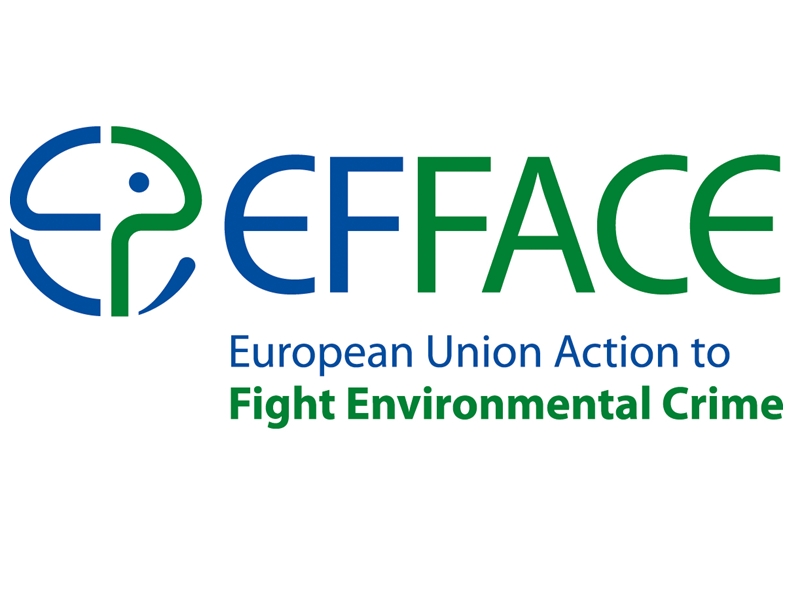European Union Action to Fight Environmental Crime (EFFACE): Conclusions and Recommendations
on fighting environmental crime more effectively
- Publication
- Citation
Faure, Michael; Niels Philipsen; Teresa Fajardo del Castillo et. al. (2016): Conclusions and Recommendations. Study in the framework of the EFFACE research project.
A new report presents the conclusions and policy recommendations of the EU-funded research project, "European Union Action to Fight Environmental Crime" (EFFACE). The report includes recommendations for action to better combat environmental crime at the EU and Member State level, distinguishing between core and supplementary recommendations. In addition to these recommendations, questions for further research are identified. The report is available for download.
Ecologic Institute contributed, in particular, recommendations on better cooperation between enforcement institutions, enhancing the role of civil society and changing rules on corporate responsibility and liablity.
Core recommendations by EFFACE
Some of the core recommendations are the following:
- Rules on the confiscation and forfeiture of the proceeds of environmental crime should be adopted at the EU level.
- An obligation should be imposed on Member States to provide data on the number of violations, prosecutions and imposed sanctions for violations of national provisions implementing European environmental law, commonly referred to as the environmental acquis.
- Member States should promote effective sanctions, including civil and administrative sanctions (also fines). They should introduce and use complementary sanctions and measures, in addition to the classic criminal sanctions, prison sentences and fine.
- Draft non-binding bottom-up guidelines concerning prosecution and sentencing policy should be developed that can be applied throughout the EU. Ideally, these guidelines should be development by networks of practitioners from various EU Member States.
- Member States should provide for specialisation of prosecution and adjudication on environemntal crime.
- The EU should set minimum criteria for inspections and monitoring.
- The role of Eurojust, the European Public Prosecutor’s Office, environmental enforcement networks and Europol should be enhanced and networking at the domestic level should be stimulated.
The conclusions and policy recommendations are the result of almost 40 months of research. The research included legal analysis, data analysis, various case studies, and an analysis of the strengths, weaknesses, opportunities and threats (SWOT) of the current approach of the EU to combating environmental crime.
Priority areas
The EFFACE consortium selected nine areas where policy recommendations seems pertinent and prepared reports on each of them:
- Data and information management
- Further harmonisation of substantive environmental criminal law at EU level
- System of sanctions (administrative vs. criminal vs. civil proceedings
- Functioning of enforcement institutions and cooperation between them
- Role of environmental crime victims and civil society
- External dimension of environmental crime – what can EU do
- Use of environmental liability
- Organised environmental crime
- Corporate responsibility and liability in relation to environmental crime
These reports constitute the basis for the overall conclusions and recommendations. Draft conclusions and recommendations were discussed with stakeholders at a workshop in October 2015 and the EFFACE final conference in February 2016 in Brussels.
